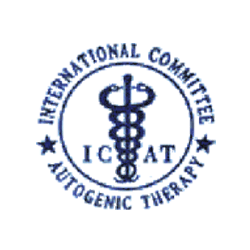
II World Congress
International Society of Autogenic Training & Psychotherapy
September 12, 2015, Alfredo Kraus Auditorium
Las Palmas Canary Islands, Spain
Introduction
The term metapsychology was introduced by S. Freud to describe psychic processes, and was used by the same author for elaborating the “psychoanalytic theory”. The term is used to refer to the set of psychoanalytic tools that leads the individual behind and beyond consciousness. In this study I have assumed and proposed the concept of metapsychology in relation to the methodology of autogenic training elaborated by J. H. Schultz.
Objective
The framework of theoretic autogenic training provides a holistic vision of the Individual. Human being cannot be reduced to the conscious/unconscious dimensions counterpoised to each other. Here it is proposed an integral approach to study subjects in order to promote a process of openness and connection between
the different states of consciousness. Conscious and unconscious, that will not be considered as opposite, but as an unity and organismic integration. The object is not to build a theory of mind as S. Freud proposed for justify the psychoanalysis, but to individuate and understand different psychological and somatic phenomenons favoring the needs of a certain state of consciousness of peace.
Method
It produces an anthropologic confrontation between the various methods that bring a person to experience a state of self-awareness autogenous. A state of consciousness that favors the relationship with the "living system", in autonomy, it shows a natural state and not an extraordinary condition. This is called “emergent property” because it is produced by the subject itself under certain conditions. They are the same characteristics of a meditative states. The metapsychology of the autogenic training, is not a proposal of a new theoretical model, but it aims to recognise the process and relationships that occur in a determined consciousness state.
Conclusions
The need and the search for a autogenous state is a basis anthropological, transcultural and universal, one can speak of plural-identity, which according to the orientations assumes particular features . The interpretative models that favor some theoretical models ( homeostatic cognitve , psychoanalytic , phenomenological , meditative etc) tend to develop a working methodology , here we want to give value to the nature of the experience of states of consciousness that have some features that belong to the nature of man regardless from methodological visions. The aim is to recognize the validity of this human need to enhance its processes and the relations in the context of development for taking consciousness of the human being.
Self-awareness of an enlarged consciousness, which emerges in the autogenic state, gives a specific value to the practice and places this experience in the meditative field.
progettodivenire@gmail.com
Ph. Student - Lorraine University - Nancy
Psychologist, Psychotherapist, Turin, Italy
Member I.S.A.T.A.P. – E.C.A.A.T.- I.C.S.A.T.
Autogenics 3.0
luis de rivera
Fecha Publicación: 02/05/2018
The Birth of Autogenic Training
Heinrich Wallnöffer
Fecha Publicación: 31/03/2017
FROM AUTOGENIC TRAINING TO AUTOGENIC PSYCHOTHERAPY
Luis de Rivera
Fecha Publicación: 30/03/2017
Coherencia Cardiaca Autógena para Conductores de Vehículos
Luis Hernández Herrero
Fecha Publicación: 30/03/2017
Bruxism: Intensive Short-term Dynamic Psychotherapy (ISTDP) of H. Davanloo and Autogenic Training (AT) of J. H. Schultz. Intervention and effectiveness at later stages. Doctors, Dentists and psychologists in synergy
Alessandro Dott Bargnani
Fecha Publicación: 26/03/2017
Relaxation and symboltherapy
Marietta Németh et. al
Fecha Publicación: 25/03/2017